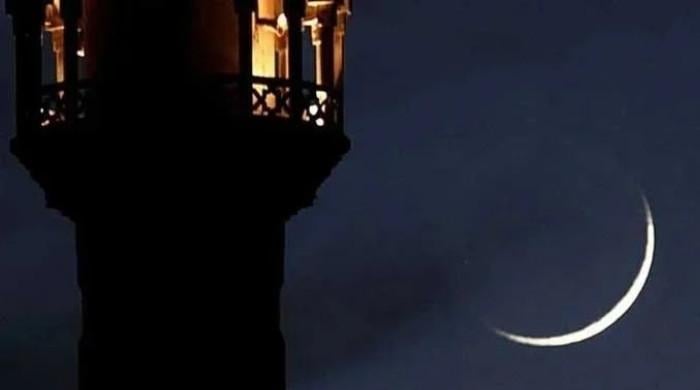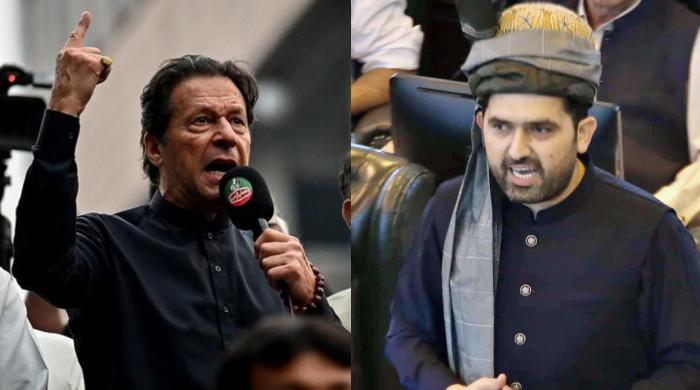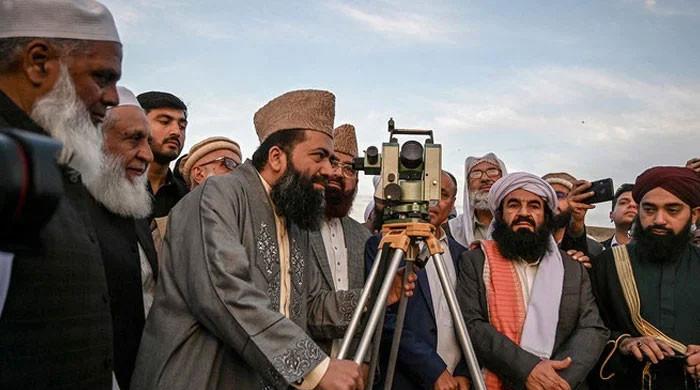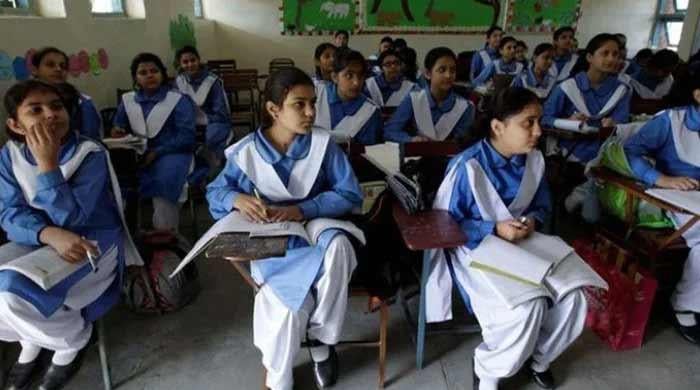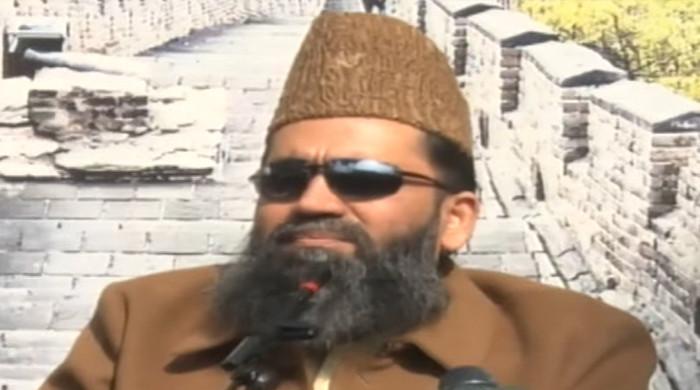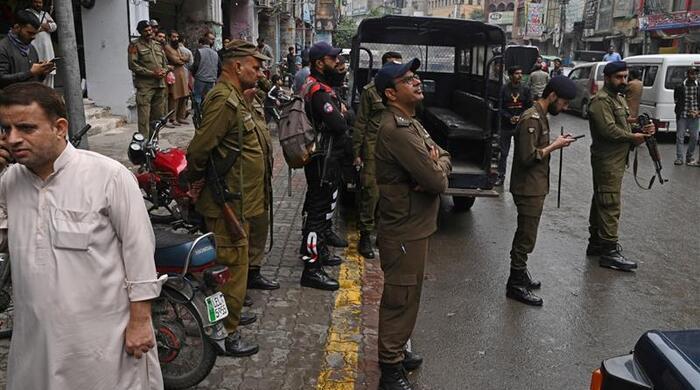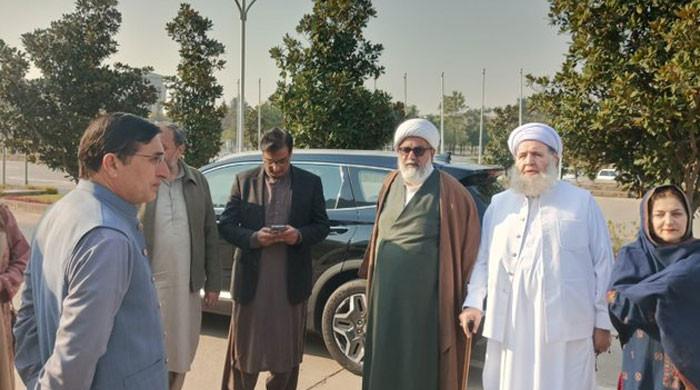Can NA speaker disregard dissident MNAs' votes?
AGP Khalid Javed Khan says as mentioned in Article 95, votes cannot be disregarded, irrespective of consequences
March 23, 2022
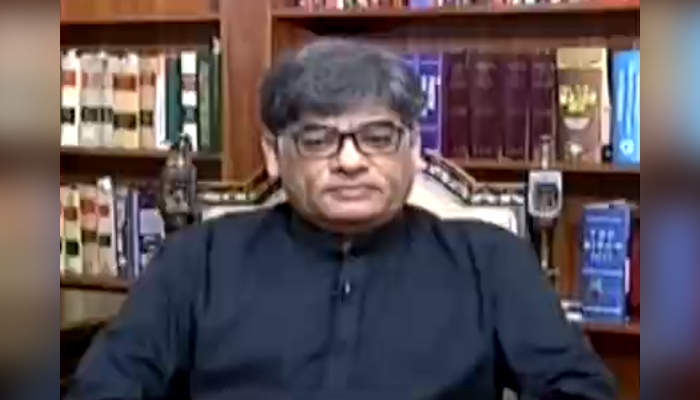
- AGP Khalid Javed Khan says as mentioned in Article 95, votes cannot be disregarded, irrespective of consequences.
- Says Article 63 (A) alone cannot make grounds for dismissal of votes or disqualification of party member if they vote against party.
- Says a discussion related to what would be the [course of action on this] is yet to happen.
The government has moved the Supreme Court to seek its interpretation on Article 63(A) of the Constitution — which deals with the disqualification of lawmakers over defection from the parliamentary party.
The government, as the days approaches for the National Assembly to vote on the no-confidence motion against Prime Minister Imran Khan, is also mulling whether the speaker can disregard the votes of the lawmakers who go against the party's policy.
In this regard, when Attorney-General of Pakistan Khalid Javed Khan appeared on Dunya News' talk show on Tuesday, he said that under Article 95, votes cannot be disregarded, irrespective of the consequences.
He said that since the provision of the no-confidence motion has been stipulated in the Constitution of Pakistan, he has lately pondered over the issue "quite deeply."
"I have come to the conclusion that since all members of the National Assembly can exercise their right to vote for or against the motion of no-confidence under the Constitution as stipulated in Article 95, votes cannot be disregarded, irrespective of the consequences," he said.
Shedding light on Article 63 (A) of the Constitution — which suggests disqualification on grounds of the defection of an MNA for not obeying the parliamentary party's directions when casting a vote of no-confidence against the prime minister — the AGP said, in his view, that the said article would not be enough to create grounds for disqualification because of the existence of Article 95.
"A discussion related to what would be the [course of action on this] is yet to happen," he said.
When the host of the show asked whether the AGP is stating that the vote of dissent would not be discarded, he said that there could be two views on that but principally agreed that the votes cannot be discarded and should be counted.
"Had the people who made the Constitution chosen to bar a member of a party to cast their vote against the party, they could have simply added that to Article 95," he said.
What had the AGP previously said?
A day ago, while speaking during Geo News' programme "Aaj Shahzaib Khanzada Ke Saath," the AGP had said that disqualifying lawmakers for life could clamp down horse-trading.
After the government filed the presidential reference for the interpretation of Article 63A in the Supreme Court to deal with alleged horse-trading amid defections of ruling PTI members in large numbers and the party seemingly losing control, AGP Khan said that floor-crossing is not only illegal but also an immoral act.
"Penalty for crossing floor should not be a one-time disqualification if Article 63A is read with Article 62," he had said, contending that those not fulfilling the Article 62 (1)(f) criterion stand disqualified for life as interpreted by the SC.
Therefore, a parliamentarian crossing floor should be considered to have lost the qualities stated in Article 62 (1)(f) of Article 63A is to be made effective, AGP Khan had said.
As per the attorney general, the two questions — is Article 63A an isolated provision of the Constitution or is it part of the larger scheme that includes Article 62 (1)(f) — is the government's case in the apex court.
So far, the attorney general said, these two questions have not been interpreted in any case, adding that such an interpretation would not only be for the sitting government but also for the entire political process.
He said that if the conscience of a parliamentarian awakens, he should resign and seek reelection. Article 63A does not apply to the government’s allies, he concluded.




